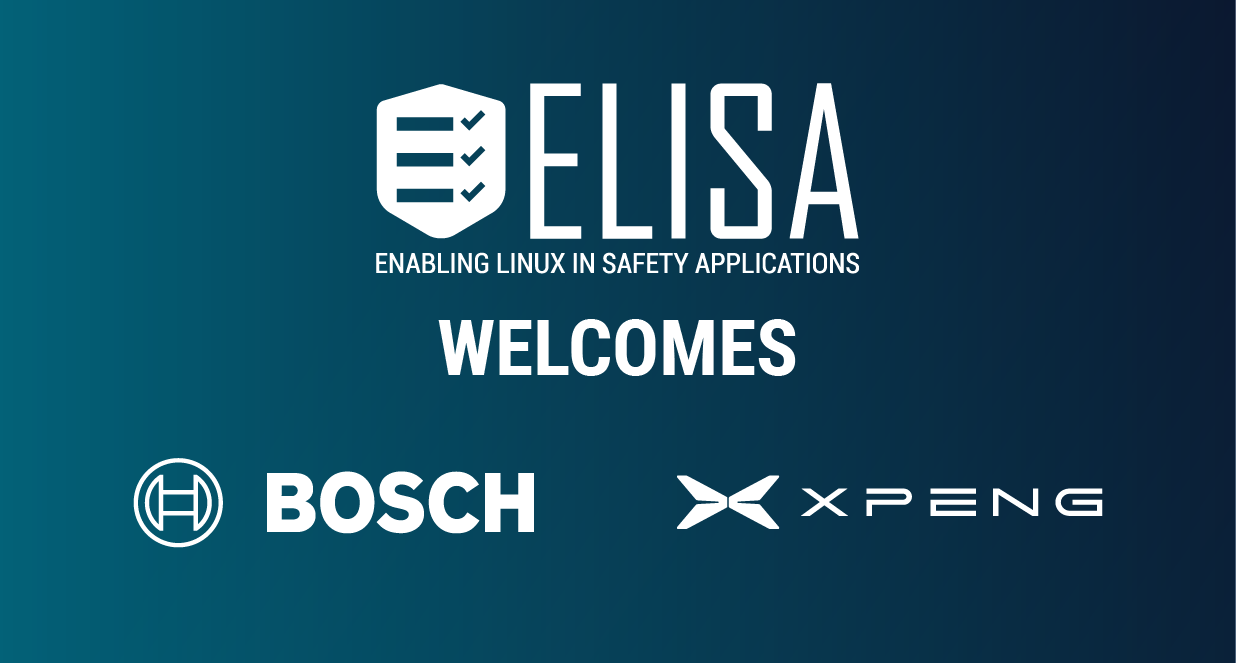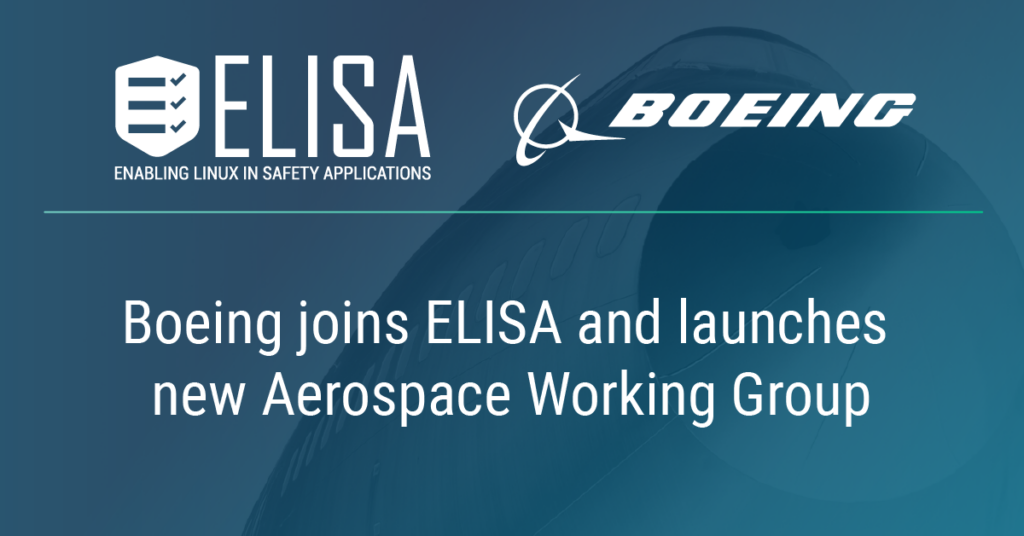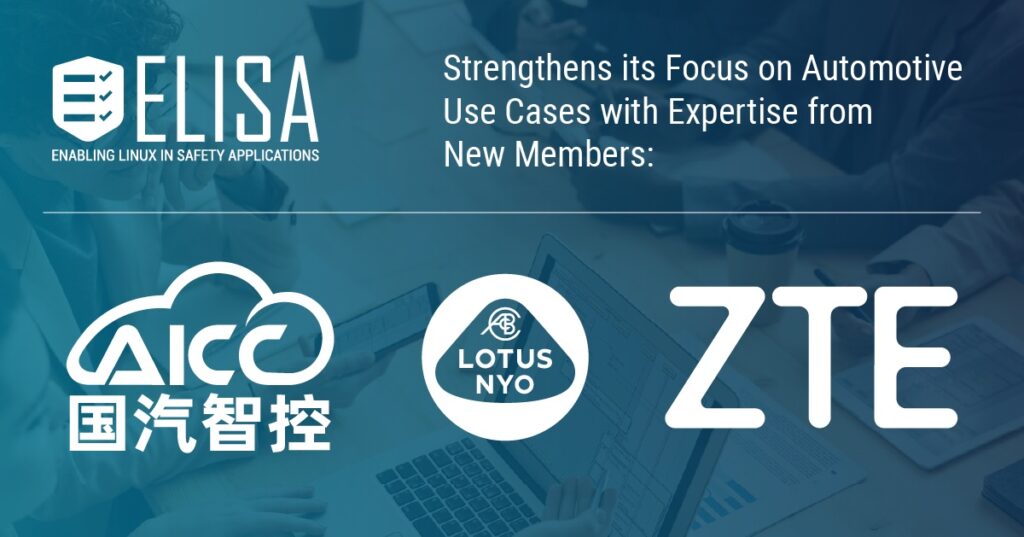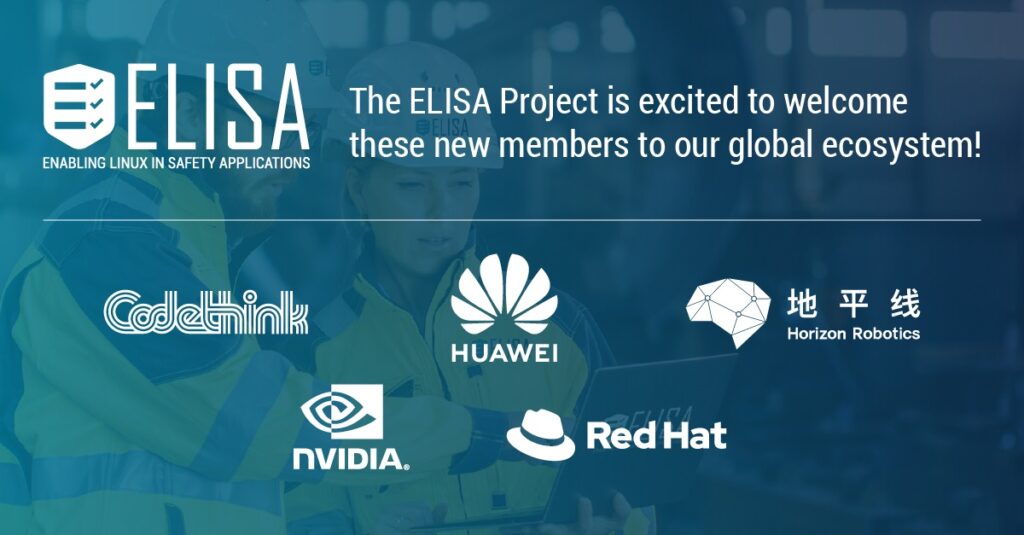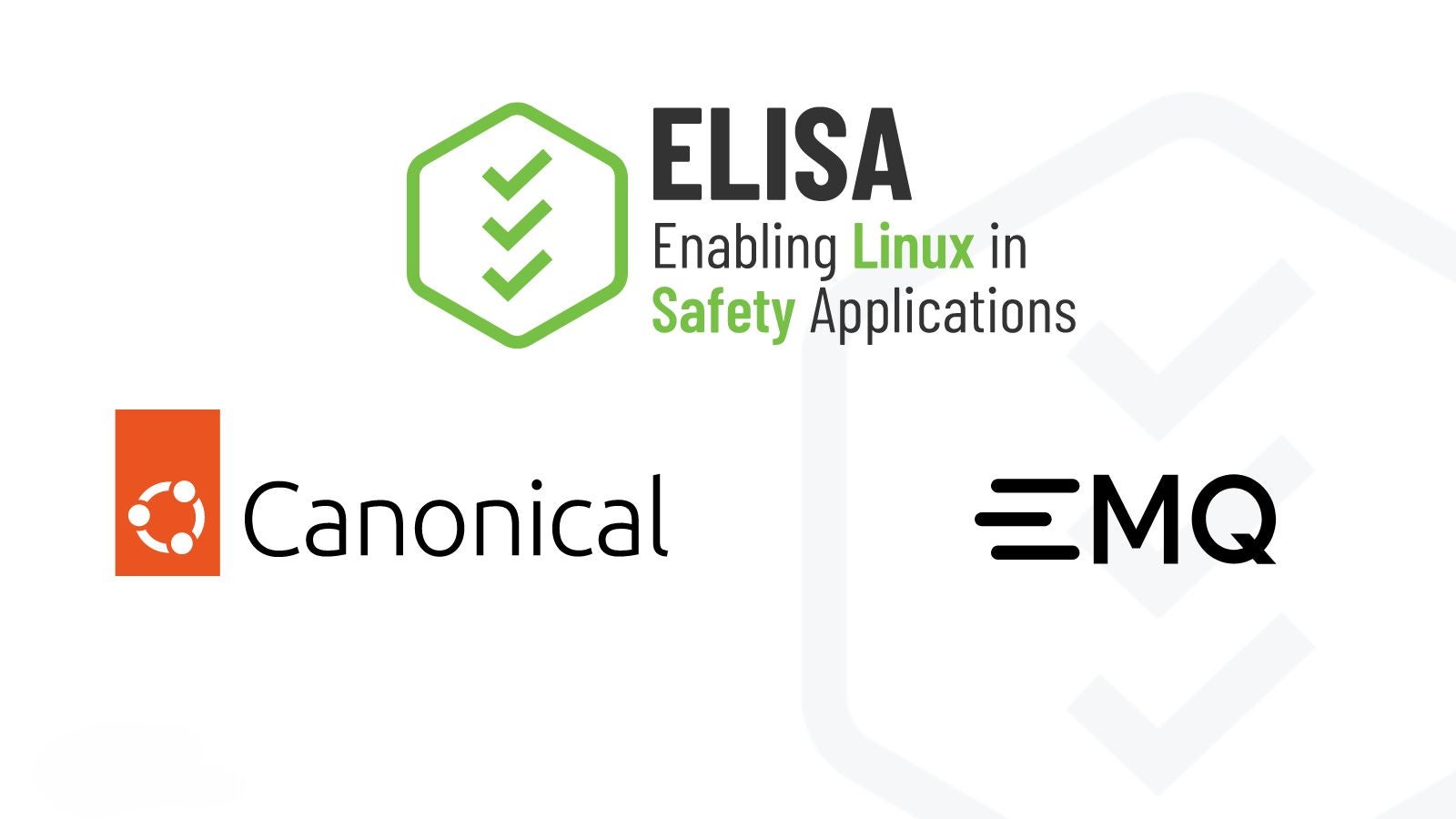
SAN FRANCISCO – June 4, 2024 – Today, the ELISA (Enabling Linux in Safety Applications) Project announced that Canonical and EMQ have joined the project, marking their commitment to Linux and its effective use in safety-critical applications. Hosted by the Linux Foundation, ELISA is an open source initiative that aims to create a shared set of tools and processes to help companies build and certify Linux-based safety-critical applications and systems.Canonical is the publisher of Ubuntu, a provider of open source security, support and services. Their portfolio covers critical systems, from the smallest devices to the largest clouds, from the kernel to containers, from databases to AI.
“We at Canonical recognize that safety isn’t just a feature—it’s a necessity, especially in critical industries like automotive,” said Bertrand Boisseau, Automotive Sector Lead at Canonical. “By teaming up with ELISA, we aim to advance functional safety on Linux and automotive ISO standards requirements. Our dedication to quality, security, and safety aligns seamlessly with ELISA’s mission, and we’re excited to contribute our expertise to this initiative. This way, as vehicles become more sophisticated, they also become safer, benefiting not only the automotive industry but also the broader community.”
EMQ is a leading global provider in the MQTT-based Messaging Platform domain. Its flagship product, EMQX, is a robust and unified MQTT platform, serving as a foundational component for modern IoT solutions. It supports up to 100 million IoT device connections per cluster, boasts a throughput of up to 1 million messages per second, and ensures sub-millisecond latency. EMQX is trusted by over 20,000 enterprise users worldwide, connecting more than 200 million IoT devices, and catering to over 600 customers in critical IoT scenarios.
“We are thrilled to be an ELISA Project member,” says Jun Gu, Director of Community Engagement at EMQ. “By integrating our expertise in Connected Cars with ELISA’s mission, we aim to enhance the reliability and safety of Linux-based systems in industries where failure is not an option such as the Automotive Industry where we have already built solutions. This collaboration underscores our commitment to innovation and safety, ensuring that our solutions meet the highest standards of safety and security.”
Linux is used in all major industries because it can enable faster time to market for new features and take advantage of the quality of the code development processes. Launched in February 2019, ELISA works with Linux kernel and safety communities to agree on what should be considered when Linux is used in safety-critical systems. The project has several dedicated working groups that focus on providing resources for system integrators to apply and use to analyze qualitatively and quantitatively on their systems.
ELISA Project members include Premier members Boeing and Red Hat. Other members include, AISIN AW CO., Arm, Automotive Grade Linux, Bosch, Codethink, Elektrobit, Huawei Technologies, Linuxtronix, Nissan, SAIC Motor, SUSE, and Wind River.
ELISA Workshop
The ELISA Project hosts in-person workshops on a regular basis to gather the project members, contributors, and other partners in the ecosystem to advance collaboration, accelerate project progress, and plan for future goals. The workshop is being held at the Volvo Cars office in Lund, Sweden on June 4-5.
There will be presentations from Volvo, Red Hat, The Linux Foundation, NVIDIA, Modus Create/Tweag, SUSE, Canonical, Magna, Bosch, and leaders for some of ELISA’s Working Groups. Interested participants can register to attend this workshop virtually. Check out the agenda.
Linux Plumbers Conference
The Linux Plumbers Conference takes place in Vienna, Austria on September 18-20. The Call for Proposals for Referreed Track Presentations as well as content for Microconferences are currently open. There are several ELISA- related microconferences including Kernel Testing and Dependability, Tracing and Safe Systems with Linux, which is chaired by Kate Stewart, Vice President of Dependable Embedded Systems at the Linux Foundation, and Philipp Ahmann, ELISA Project Chair of the Technical Steering Committee and Technical Business Development Manager at Bosch. Submit topics through June 16. Learn more here.
Other resources include:
- ELISA Seminar Series: This series, which is free to attend, focuses on hot topics related to the industry and ELISA’s mission. Speakers are members, contributors and thought leaders from the ELISA Project and surrounding communities. You can watch all videos on the ELISA Project Youtube Channel on the Seminar Series Playlist.
- Safety-Critical Software Summit: The event was hosted in Seattle, Washington on April 16-18 co-located with Open Source Summit North America. Sponsored by ELISA, safety experts and open source developers gathered to enable and advance the use of open source in safety-critical applications. Watch the videos.
Member Support Quotes
“Red Hat is committed to actively fostering and contributing to upstream open source projects like ELISA. Since joining in July 2021 as a premium member, Red Hat has promoted tools and analysis aimed at encouraging the use of Linux in safety critical systems that sit at the heart of software-defined vehicles. From BASIL and ks-nav for tracing requirements and test specifications to helping drive internal design of the Linux Kernel code and more, Red Hat continues to collaborate with the open source ecosystem to fast-track Linux for automotive and other functional safety industry segments.” – Gabriele Paoloni, ELISA Governing Board Chair, Red Hat
For more information about ELISA, visit https://elisa.tech/.
About the Linux Foundation
The Linux Foundation is the world’s leading home for collaboration on open source software, hardware, standards, and data. Linux Foundation projects are critical to the world’s infrastructure including Linux, Kubernetes, Node.js, ONAP, OpenChain, OpenSSF, PyTorch, RISC-V, SPDX, and more. The Linux Foundation focuses on leveraging best practices and addressing the needs of contributors, users, and solution providers to create sustainable models for open collaboration. For more information, please visit us at linuxfoundation.org.
The Linux Foundation has registered trademarks and uses trademarks. For a list of trademarks of The Linux Foundation, please see our trademark usage page: https://www.linuxfoundation.org/trademark-usage. Linux is a registered trademark of Linus Torvalds.
###


